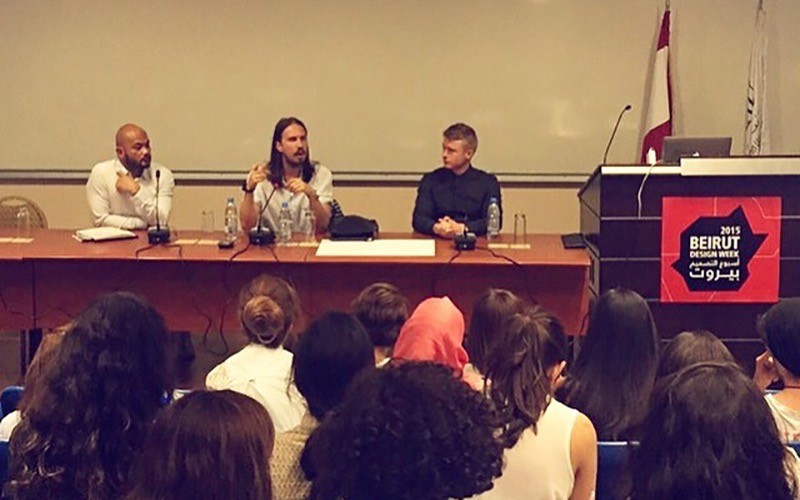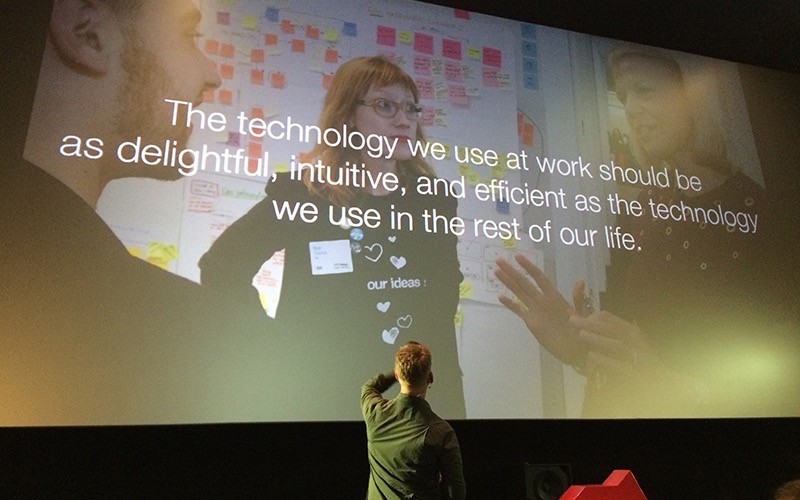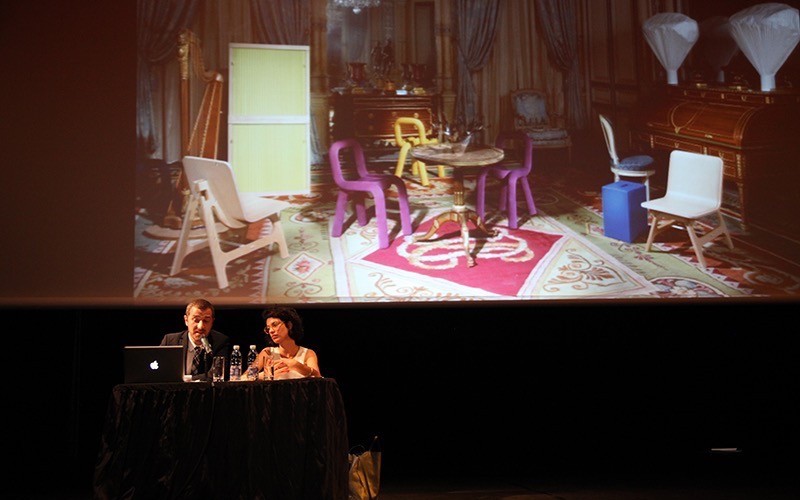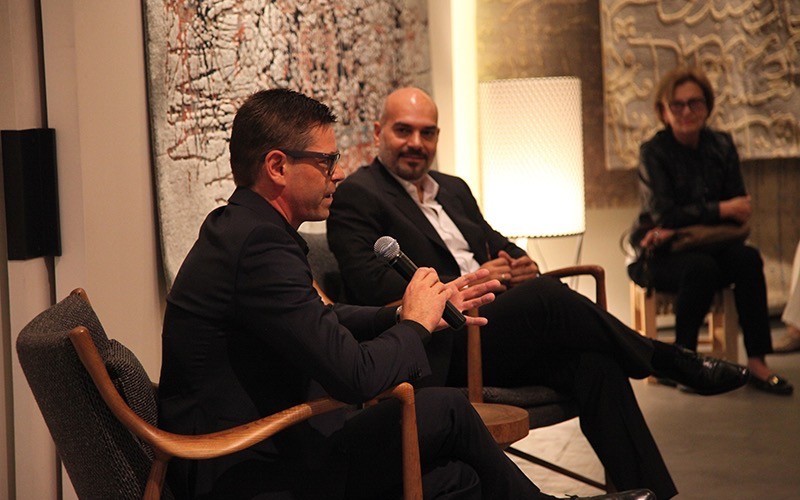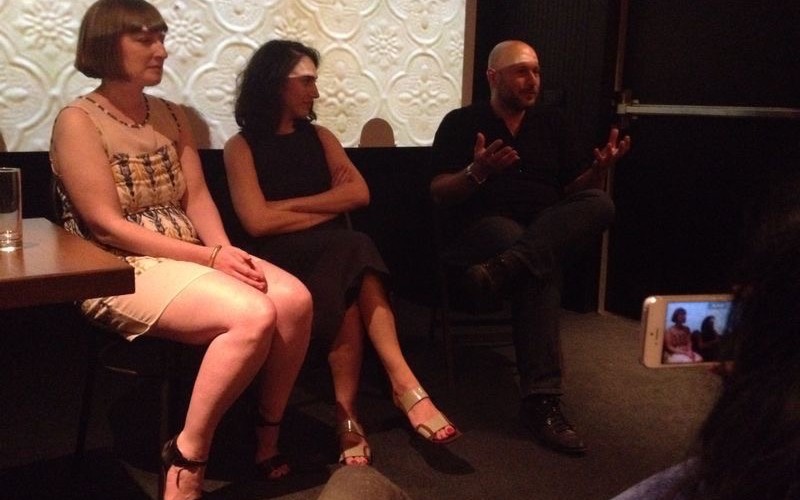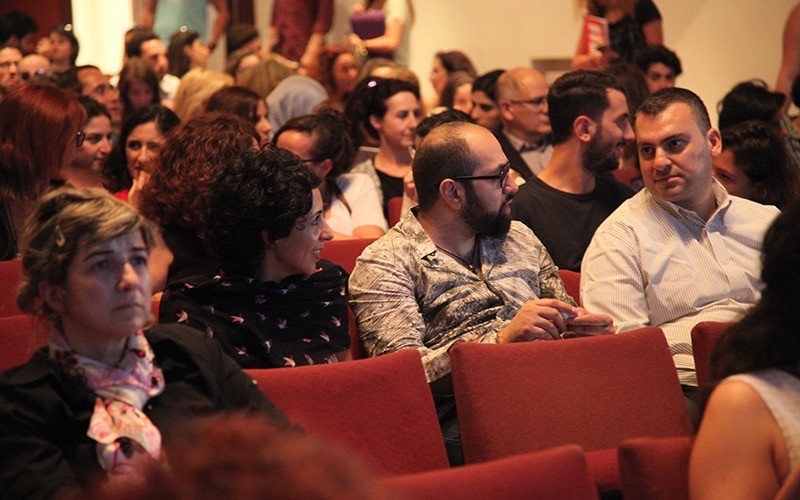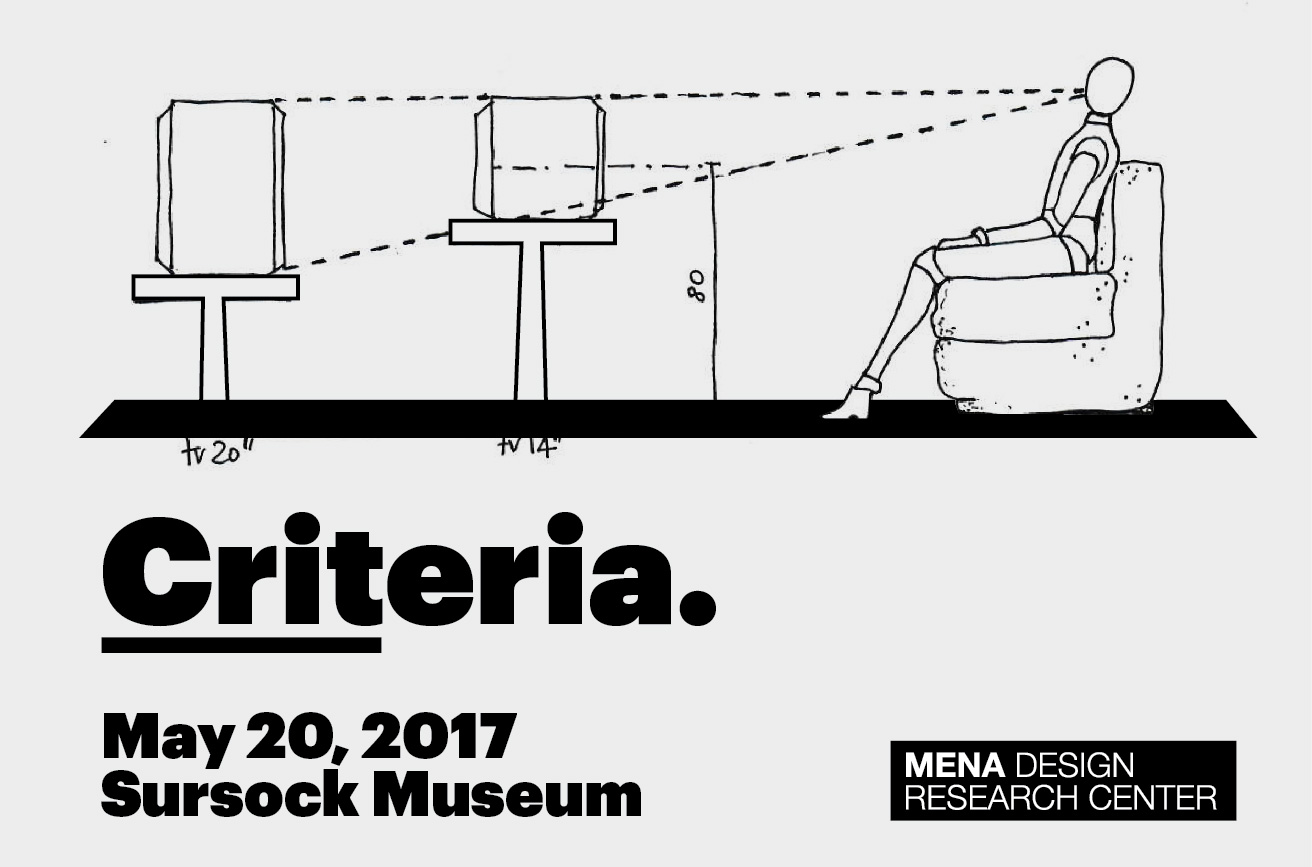
Criteria.
A Conference on Critical Design
The MENA Design Research Center is pleased to host an interdisciplinary conference that focuses on the value of critical theory to design, arts, social sciences, and media. The conference aims to encourage interdisciplinary engagement that brings together academics and practitioners to share knowledge on how critical theory encourages social change by challenging assumptions about the status quo.
The conference seeks to understand how the relatively new field of Critical Design positions the design discipline within a larger constellation of critically-oriented research. As Dunne, Raby, and others have shown, critical design, as opposed to affirmative design, asserts that design ought “to raise issues, to ask questions and to challenge assumptions” (1) rather than only emphasizing problem-solving and production. Critical Design uncovers the “values, ideologies, and behavioral norms” that design processes often obscure (2). In the same vein as the Frankfurt School-inspired critical theory that preceded it, critical design is a research orientation dedicated to transgressing and undermining social conformity, passivity, and other values of capitalist ideology, in hopes of bringing about social emancipation. We are surrounded by products that give us an illusion of choice and encourage passivity. But “industrial design’s position at the heart of consumer culture could be subverted for more socially beneficial ends by providing a unique aesthetic medium that engages the user’s imagination.”(3)
With increasing social and environmental challenges, the future seems unnerving; however, instead of taking critical and opposing stances, many tend to conform and retreat into self-constructed consumerist realities. Social media helps create the illusion that humanity is passionately united under similar causes and struggles, but in reality most have accepted these world challenges as norms. What roles can designers play in such circumstances? Designers are taught and expected to use their skills to create products and experiences that shape the opinions, values, emotions, and behaviors of their users. With what tools and methods do critical designers need to be equipped in order to become agents of change? How can designers disrupt the value that systems and generations of products have created since industrialization and shed light on contemporary social issues to which we have become oblivious?
For example, in 2010, a group of Lebanese students showcased a range of products that critiqued aspects of Lebanese society at the Salone del Mobile in Milan. These products included Union – a radio that allows users to listen to all six main political party stations simultaneously; INcognito – a dome-shaped umbrella that addresses the physical impositions of the burka; and Dust in the Wind – a product that critiques the illegality of cremation in Lebanon. The exhibition was named ‘Design in Times of Crisis’. Although these students may not have been aware of critical design, their projects nevertheless epitomized the drives and motivations of this new, emerging field. Therefore, critical design needs to be located within an epistemological network of critically-oriented research, especially with a focus on local context.
The conference is set to take place on the 20 May 2017 at the Sursock Museum during the sixth annual Beirut Design Week. MENA Design Research Center welcomes proposals for presentations, papers, workshops, or artefacts from media, design, and social sciences students, scholars, and practitioners. Please submit a 300-word abstract to submissions@menadrc.org by 10 March 2017. Proposals should include a 100-word biography and the form that your presentation will take (paper, presentation, workshop, artefact). Accepted submissions will be notified by 17 March 2017.
Sources:
1. Dunne, A. (2006). Hertzian Tales: Electronic Products, Aesthetic Experience, and Critical Design. MIT Press.
2. Dunne, A., and Raby, F. (2001). Design Noir: The Secret Life of Electronic Objects. Birkhäuser.
3. Barthes, R. (2000). Mythologies. London: Vintage.

